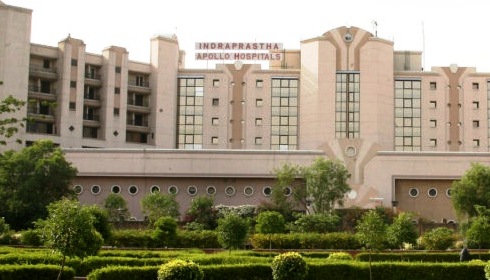
Healthcare sector expects creation of infrastructure models to improve accessibility in rural areas
On the eve of the presentation of the budget in the Parliament, experts from the healthcare industry expect that the government would make all efforts to create newer models to improve accessibility, availability, affordability, and quality in Tier 3 and 4 including rural areas.
Mr Ashim Kumar, Facility Director at Narayana Super Speciality Hospital, Howrah, “We have already witnessed the importance of technology in healthcare. Now, we need to move to the next level by adapting technologies (digital health with all its newer tools like IoT, AI, data analytics, and electronic records). New technologies can take care of the entire continuum of care. These technologies have specific roles from admission to discharge and post-discharge period too.”
“Now, the National Digital Health Mission is in place and we hope the government will surely announce further impetus for wider use of technologies. We need Out of Box thinking for innovative health Care Models which would keep the cost low and within reach of all income groups with introduction of technology and skilled manpower for reaching clinical excellence. This is imperative to ensure Quality healthcare for all,” he added.
The budgetary allocations for health in 2022-23 were nearly 2%. The industry is hoping that the government would surely make provisions for spending an extra 0.5% of GDP every year on health for the next five years and encourage private sector investments through tax sops and other incentives.
Anurag Kashyap, Director-Finance & Strategy, TR Life Sciences, said, “ Both capital and operational expenditure have significantly increased for the hospitals. This has cascading effects on the cost of treatment. For sustainability and quality, the hospitals would pass on the burden to the patients. To overcome this challenge, we are expecting that the government would create an enabling mechanism for credit facilities. Long-term (15-20 years) credit facilities would come as a booster dose for the sector as it would decrease the burden. Interest rate, tenure, and collateral are the major concerns. Easy access to capital at lower rates without collaterals would long way to creating a new healthcare ecosystem in the country.”
“The sector needs both structural and tax reforms. Tax sops and incentives for both existing and new healthcare projects are required. For new or green field projects a tax holiday period of 10 years, as given to Special Economic Zones and Tech Parks, would go a long way to transform the sector. If the Union Budget focuses on creating similar zones for the hospital sector and extending all the benefits including tax incentives, a new healthcare economy will be in place very soon,” added Kashyap.
Dr Sangita Reddy, Joint Managing Director, Apollo Hospitals Group said that budget 2023 can provide a huge fillip to create the kind of healthcare ecosystem that will propel India to achieve global leadership.
“One major factor to drive the next phase of growth will be Public-private partnerships, especially in providing community-focused solutions for improved services,” she added.
Further incentivizing health-seeking behaviour by tweaking the tax slabs, reconsidering GST terms, promoting health infrastructure & exponential investments in research and development will immensely help in addressing concerns of both affordability and accessibility.